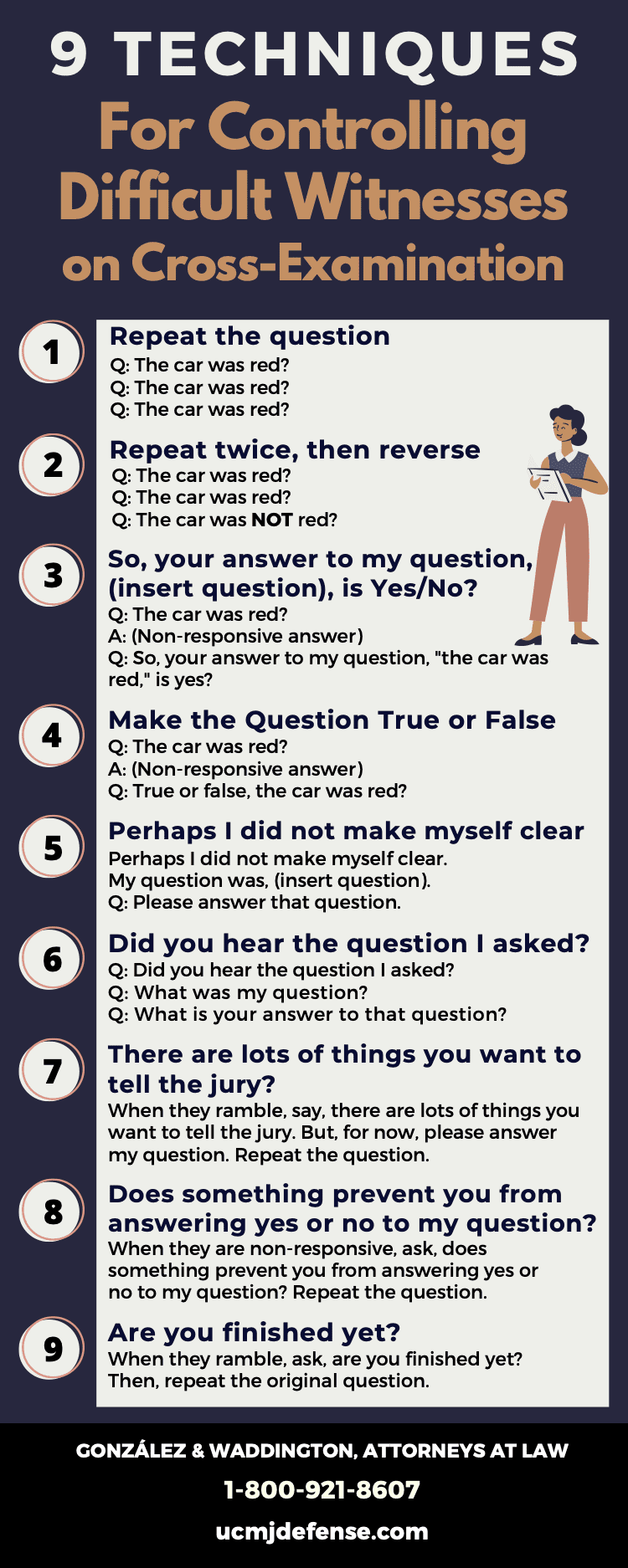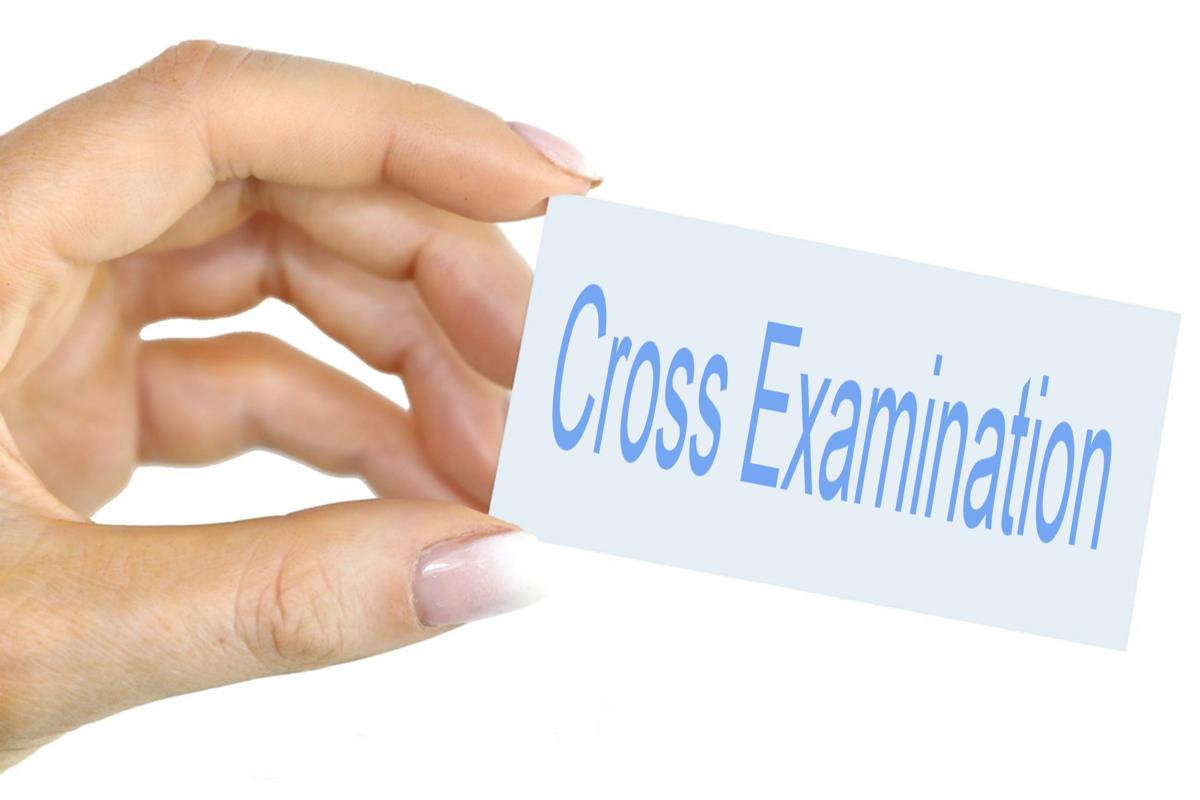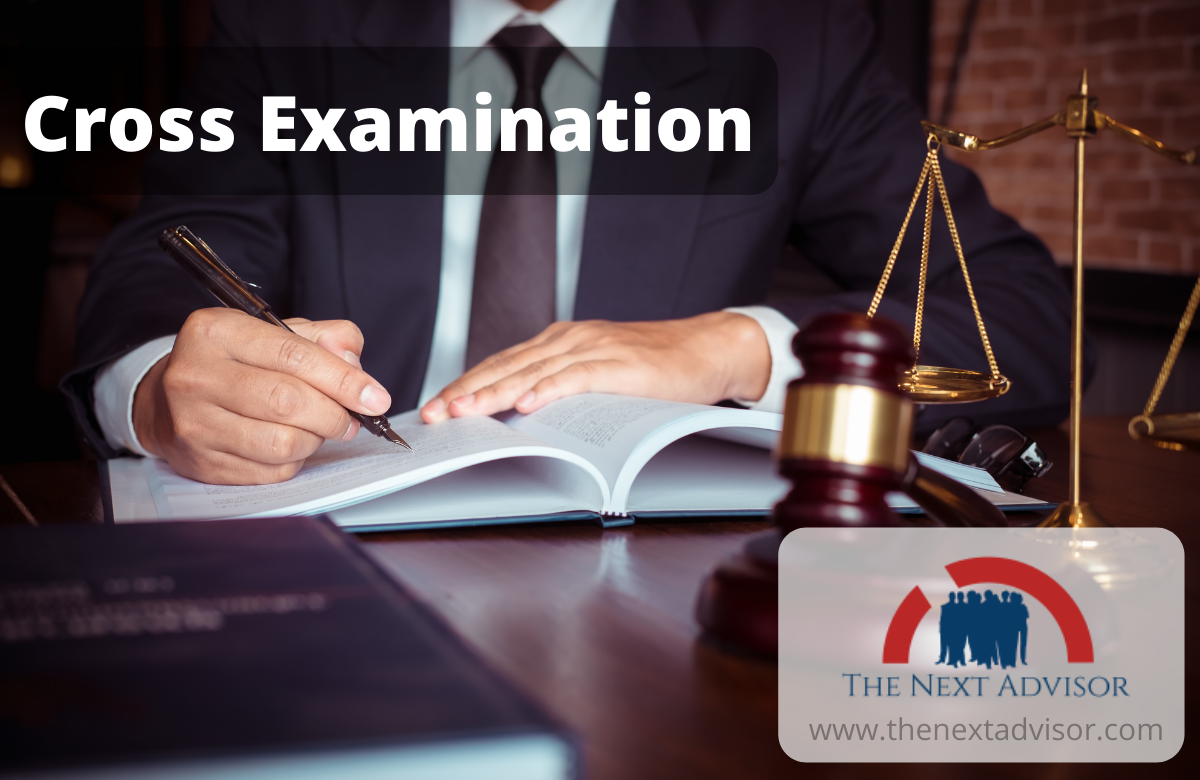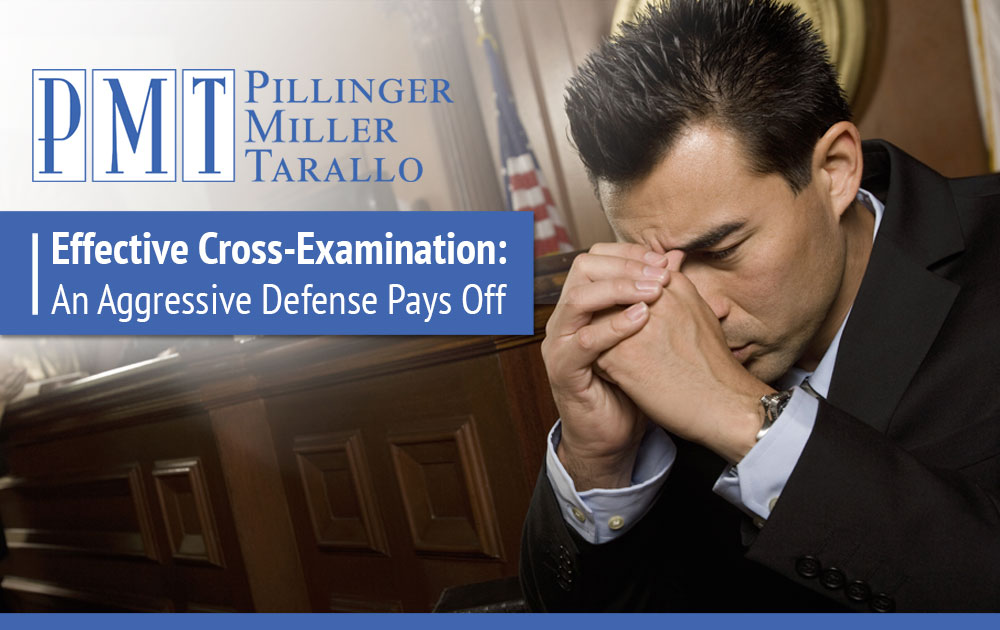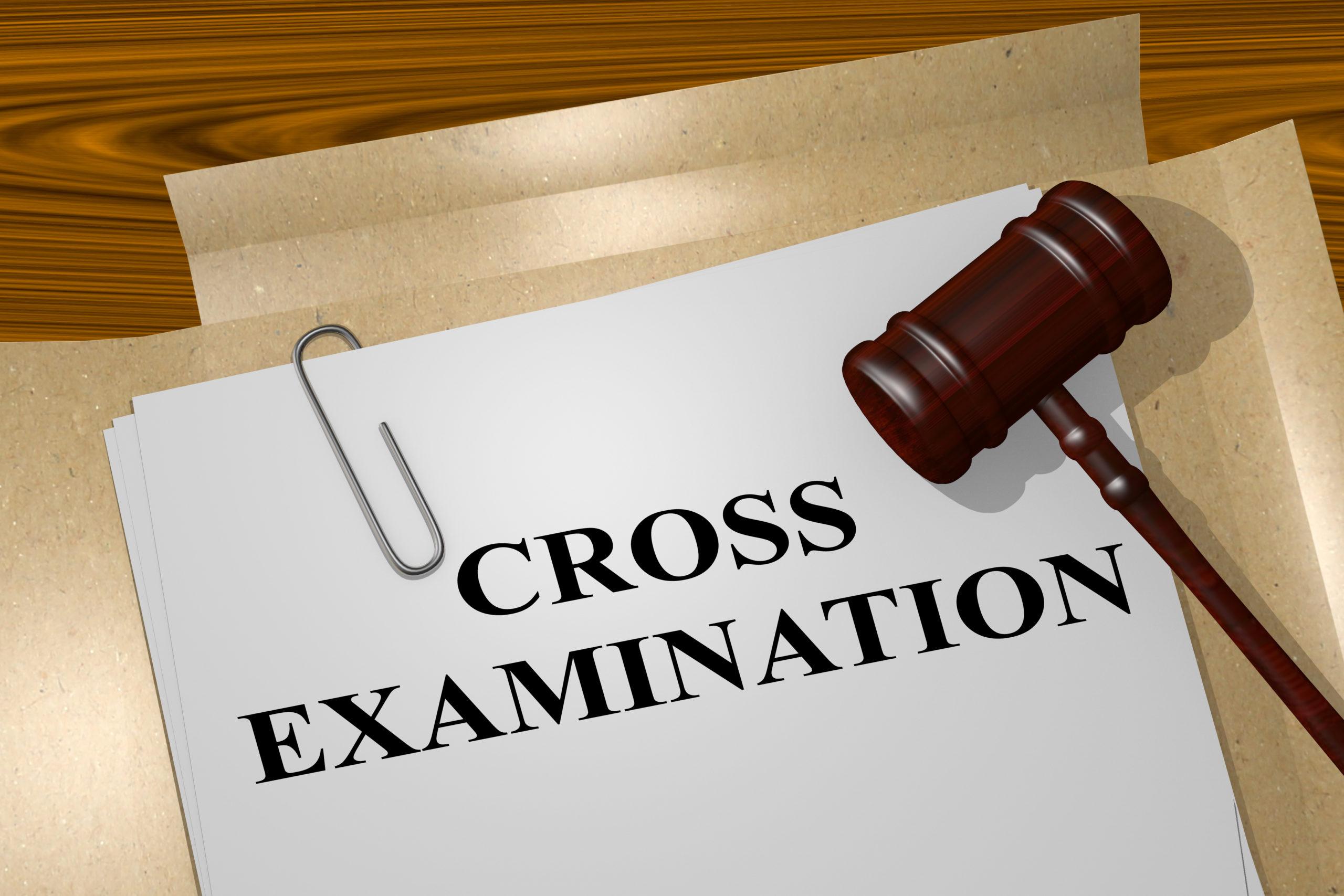Great Info About How To Start A Cross Examination

Cross examination has two key aims.
How to start a cross examination. An effective cross examination will start strong and end strong. Structure your questions to box witnesses in. Frames are the structure of your case.
This makes the most use of the primacy and recency principles. Establish your goals for each witness. Review all the evidence:
After the first cross examination, check time remaining before starting each subsequent each cross examinations. The genius is in its simplicity. Conducting the cross examination 1.
Ask questions that establish one fact at a time. I use about six or seven frames in all closing arguments. Science and techniques by pozner & dodd has long been the leading text on cross examination in the legal profession.
This includes testing the reliability of their evidence and/or their credibility as a witness. Exhaustive in its coverage at 744 pages, it addresses every area and nuance of cross examination.
Challenge the other party's evidence (that is, try to show that it's not reliable or correct). Tailor the questions to the individual. 1.3k share 59k views 2 years ago trial advocacy training for lawyers learn about this simple and powerful cross examination technique that can level up your cross!
Find a powerful point to advance with the first head point of your cross examination and a strong point. Van den berg concluded that malema’s utterances during the october 2022 eff conference in cape town amounted to hate speech and incitement to violence. Prepare the detailed sequences of questions for each fact and event you intend to prove.
Paint a picture for the jury fact by fact allowing the jurors to reach the conclusion. Leading questions are critical for an amazing cross examination!upgrade your trial advocacy skills by watching this video!
Rather, the examiner should tell the witness what happened, and get the witness to either agree or. With this strategy, you'll be. This video highlights how an examiner should never ask questions during cross examination.
Leading questions are those which suggest an answer in and of themselves, or which put words into the witness’ mouth. Cross examination takes place after the examination in chief. The experts’ financial bias is a common ground for a collateral attack.










